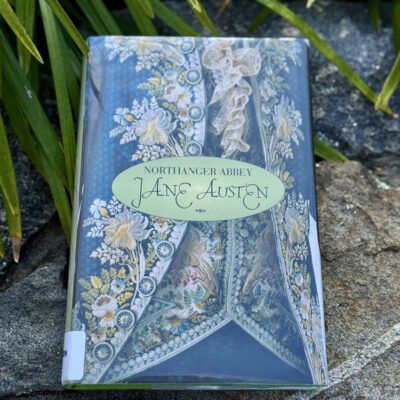
These days find me craving Jane Austen.
Reading a Jane Austen novel at any given time is its own kind of joy. In an instant I’m pulled into a world, if not a kind of writing, I discovered as a teenager. But it’s during dark times that I seem to need her most.
Back in September 2001, when it felt as if the world was crumbling beneath my feet, Jane Austen called out it me. No one I knew personally was among those who died in the Twin Towers attack, but that was little comfort for my distressed soul.
I hadn’t read a novel of hers in years but whatever spell she had cast when I first read Pride and Prejudice clearly had a lingering effect. Even without a fuller understanding of narrative tone in a novel, a diligent reader does not forget a first line like this—
“It is a truth universally acknowledged, that a single man in possession of a good fortune, must be in want of a wife.”
The same thing happened during early COVID days, when lockdown and utter fear of the unknown had me longing for any semblance of sense and sensibility.
Now, with so much strife in the world and political polarization that feeds on a web of poisonous lies, Jane Austen again brings me solace, if not escape.
To read the work of any author at fifteen is not the same as reading it at seventy-five. Fifteen gives a taste, even if you can’t fully articulate what it is you like about a novel. Seventy-five makes reading more of a repast as you pick things apart —how the plot moves without feeling contrived, how the characters play their parts, the distinctive qualities of an author’s voice. If you’re a writer, you come to see the author in a different light.
Northanger Abbey, Austen’s first novel, was written when she was in her twenties although not published until after her death. Reading it for the first time as a writer myself, and with immersion in her other books over the years, I found myself marveling at how Austen takes her characteristic charm and cleverness to another level. . ..
To continue reading click here: Medium

